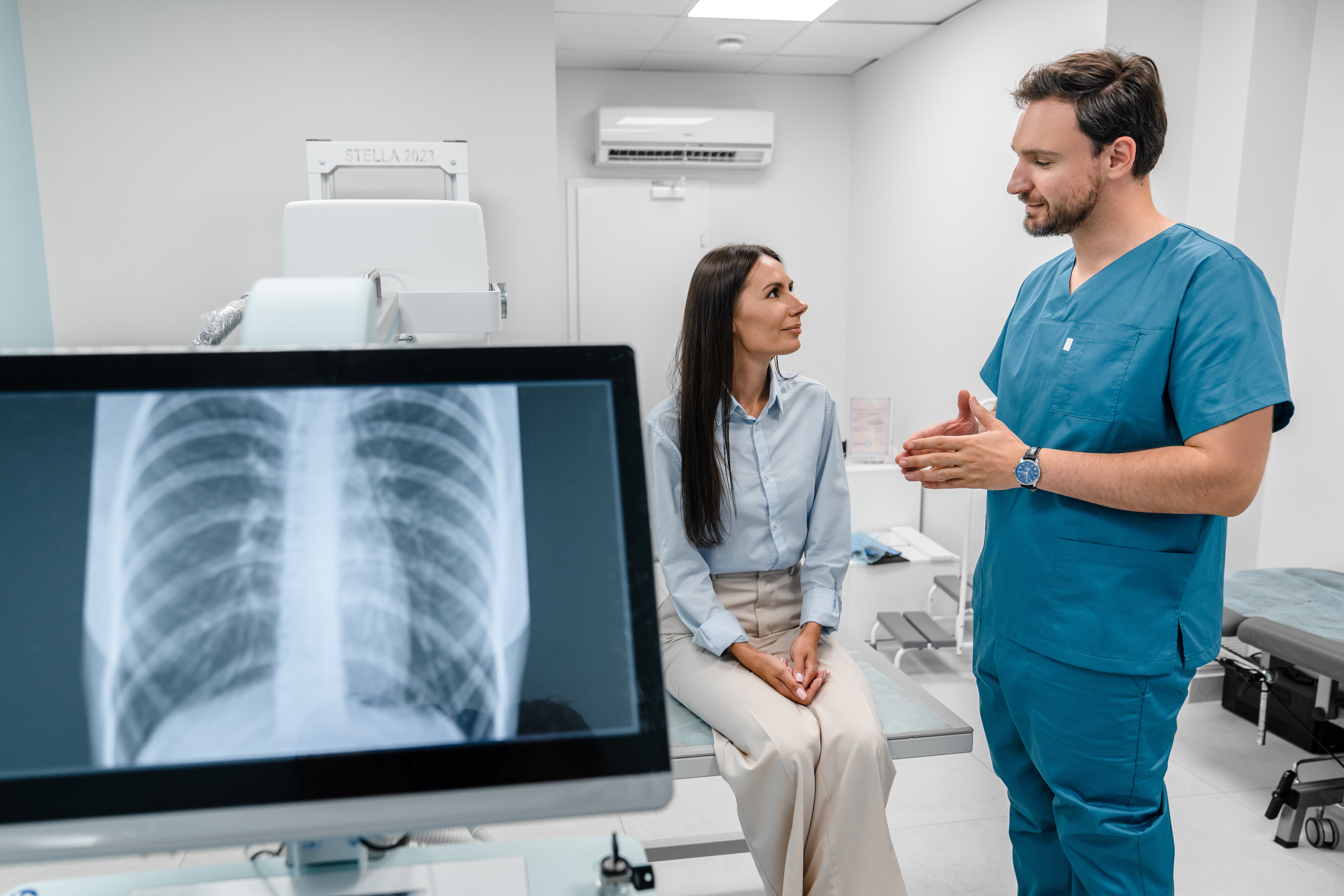
How AI could make your job easier
As the healthcare system faces increasing workloads and staff shortages, artificial intelligence (AI) is showing enormous potential to handle the more tedious and time-consuming aspects of many doctors’ roles.
This extends beyond assistance in healthcare data collection, with recent advancements demonstrating AI’s promise as a diagnostic adjunct across many clinical specialties.
The role of AI in clinical practice
You may already use medical documentation tools, or AI scribes, to save time in your practice.
These scribes are useful to record patient consultations and write a summary. But as a relatively new technology, there are risks of the scribe creating inaccurate records of a consultation.
In our recent webinar on AI, Prof Farah Magrabi, of Biomedical and Health Informatics at Macquarie University’s Australian Institute of Health Innovation, gives the example of a doctor talking about issues with a patient’s hands, mouth and feet and the AI scribe recording that they had hand, foot and mouth disease!
According to Prof Magrabi, the clinical use of AI in healthcare falls broadly into three main groups:
• Providing information to clinicians to support their decisions.
• Assisting humans to make decisions. For example, AI can look at ECG signals and detect abnormal cardiac rhythms, making it a second pair of eyes for a clinician.
• Providing decisions. This feature is useful for screening services where specialists aren’t available. For example, AI can be trained to look at images of a retina and detect diabetic retinopathy.
Like most tech solutions, AI’s output accuracy relies on the quality of data a user inputs. Prof Magrabi cited US FDA data on six years’ worth of reported safety events, showing 82% resulted from poor data being fed into AI systems. She reminds doctors not to use AI-generated output as the primary interpretation: “Responsibility for final decisions rests with clinicians. It’s about knowing what the AI is doing and accordingly adapting their practice to use it safely.”
Potential for improved diagnosis and disease risk prediction
Radiology is one specialty where AI is proving to be accurate, and useful in relieving demands on radiologists to interpret medical imaging. Speaking in the same Avant webinar, Prof Paul Parizel, the inaugural David Hartley Chair of Radiology, University of Western Australia, said, “AI can increase diagnostic accuracy and lower the rate of misdiagnosis. [It] can detect up to 25% more fractures than a trained radiologist or ED physician. AI can quantify abnormalities, allowing us to monitor treatment response in patients with chronic diseases, for example, in multiple sclerosis and oncology.”
For radiologists themselves, Prof Parizel said AI has the potential to “improve the quality and speed of service delivery to patients. AI will change the content of our jobs and define new roles. Medical imaging technologists will become empowered, with AI offering opportunities for greater autonomy and self-definition of the profession.”
Beyond aiding specialists to diagnose disease, studies show AI may predict disease risk. Recent research has demonstrated that an AI-driven eye scan could potentially predict cardiovascular and Parkinson’s disease risk.
Improved patient experience
For patients, the improved efficiencies AI can support in hospital systems can decrease processing time in emergency departments by one hour and free up hospital beds. And the potential to analyse vast amounts of data and identify patterns, augments a clinician’s ability to make treatment decisions, so that patients receive more targeted, personalised medicine.
With AI performing more administrative tasks, doctors are freed up to engage better with patients during a consultation. Prof Magrabi cited a recent 10-week study of 10,000 physicians and staff in a large health system in California.
“What they found was … clinicians were staying back less at the end of the day to complete their documentation. Patients also reported that they observed doctors spent less time on the computer and more time talking to them, compared to past visits,” she said.
Cost savings and consumer demand
Automating administrative tasks using AI can significantly improve the efficiency and accuracy of healthcare and hospital operations, including logistics and resource management, patient flow and scheduling optimisation, and billing and invoicing.
This was quantified in a 2024 Productivity Commission research paper that found “better integrating digital technology into everyday practice could save more than $5 billion a year and ease pressures on our healthcare system.”
Prof Magrabi said, “Our consumers want and expect us to use AI in healthcare”. She cited the outcome of a University of Wollongong citizens’ jury on Artificial Intelligence in Health: “Australians welcome the clinical application of AI and expect strong governance to be in place.”
Additional resources
Avant collection - Artificial intelligence (AI): what you need to know
More information
For medico-legal advice, please contact us here, or call 1800 128 268, 24/7 in emergencies.
The information in this publication does not constitute legal, financial, medical or other professional advice and should not be relied upon as such. It is intended only to provide a summary and general overview on matters of interest and it is not intended to be comprehensive. Persons implementing any recommendations contained in this publication must exercise their own independent skill or judgement and seek appropriate professional advice relevant to their own particular circumstances. Compliance with any recommendations will not in any way guarantee discharge of the duty of care owed to patients and others coming into contact with the health professional or practice. Avant and its related entities are not responsible to any person for any loss suffered in connection with the use of this information. Information is only current at the date initially published.
